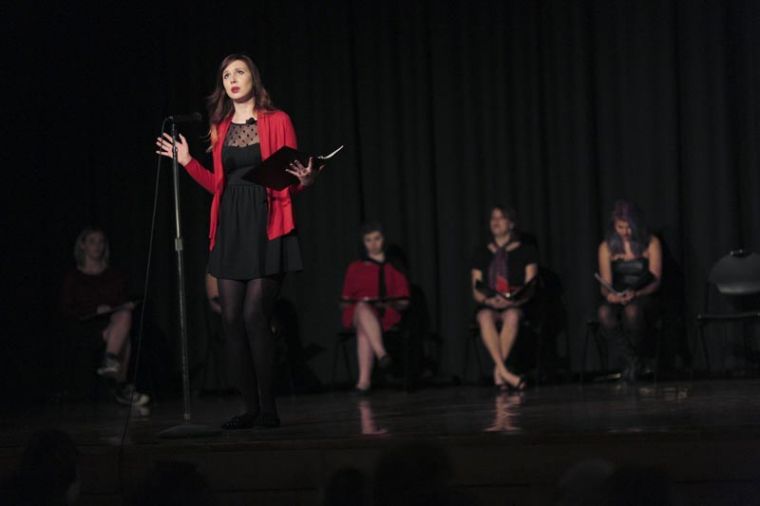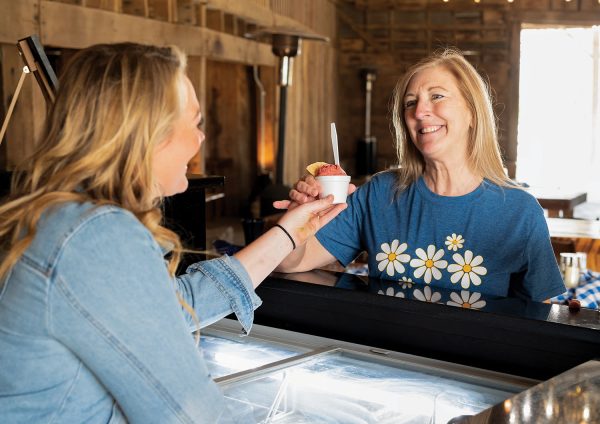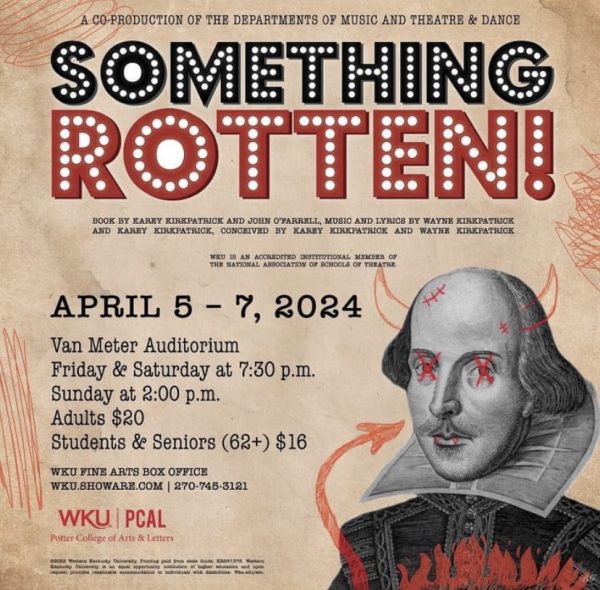WKU women speak out about sexual assault at ‘The Vagina Monologues’
March 22, 2013
“My vagina is angry. My vagina is pissed and it needs to talk. It needs to talk about all this shit!”
These words, written by author and tireless women’s rights advocate, Eve Ensler, spewed from the mouth of Alvaton junior Hilary Harlan during WKU’s annual performance of “The Vagina Monologues” on Tuesday night.
Each year, during sexual assault awareness month, the women’s studies department of WKU sponsors a performance of “The Vagina Monologues” with proceeds benefiting Bowling Green’s sexual assault trauma recovery center, Hope Harbor Inc.
The monologues, which were first performed in New York City in 1994, were compiled from interviews that Tony- Award winning playwright Eve Ensler conducted with hundreds of women from all over the world.
Her interviews focused on one thing —vaginas — and each monologue addresses a different issue facing women and their vaginas; pap smears, prostitution, the female sexual experience, virginity, molestation and rape.
Amanda Vickous, a senior from Bowling Green, and the director of the monologues, said that the monologues are more important now than ever before with the recent attitude towards sexual violence coming from U.S. politicians and major media outlets following the conviction of teenage rapists in the Steubenville, Ohio, rape case.
“Victim blaming is never okay,” Vickous said. “Your gender should never be something you are ashamed of.”
Sequoia Sims, a senior from Woodbridge, Va., became involved with the monologues because it was her way of taking a stand against sexual violence.
“It is not something to shy away from,” she said. “Sexual assault is rampant, and vaginas are powerful.”
Sims’ monologue was about reclaiming the c-word and she said the experience forced her to “get comfortable with c—.”
“I was always uncomfortable with c—,” Sims said. “But I was forced to say it over and over, and now I am much more comfortable — I am good with c—.”
Harlan, whose own parents were too uncomfortable with the content of the monologues to attend, said that many people are put off about the idea of the monologues because they think it is just some radical feminist play.
Harlan said they are more than that.
“I want everyone to open their minds,” she said. “People need to embrace other view points before they decide that they are no good.”
At the end of the performance, each woman came back to the front of the stage and said, in one sentence, the reason they chose to “rise,” and speak out about sexual violence:
“I am rising because there is a parking lot on this campus that is nick-named ‘rape valley.’”
“I am rising because victim blaming should not be tolerated.”
“I am rising because I want a better life for my daughter.”
“I am rising because ‘boys will be boys’ is bullshit.”
“I am rising to set an example.”















![Students cheer for Senator at Large Jaden Marshall after being announced as the Intercultural Student Engagement Center Senator for the 24th Senate on Wednesday, April 17 in the Senate Chamber in DSU. Ive done everything in my power, Ive said it 100 times, to be for the students, Marshall said. So, not only to win, but to hear that reaction for me by the other students is just something that shows people actually care about me [and] really support me.](https://wkuherald.com/wp-content/uploads/2024/04/jadenmarshall-1200x844.jpg)



![Megan Inman of Tennessee cries after embracing Drag performer and transgender advocate Jasmine St. James at the 9th Annual WKU Housing and Residence Life Drag Show at Knicely Conference Center on April 4, 2024. “[The community] was so warm and welcoming when I came out, if it wasn’t for the queens I wouldn’t be here,” Inman said.](https://wkuherald.com/wp-content/uploads/2024/04/smith_von_drag_3-600x419.jpg)






